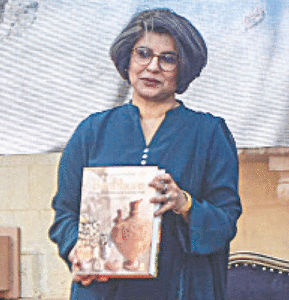KARACHI: The Sindh launch of the Annual Status of Education Report, ASER-Pakistan 2015, at a hotel here on Thursday, highlighted several key findings of some 10,000 ASER volunteers covering the country that can pave the way of policy-makers looking to work for the betterment of education here.
In Sindh, the survey was conducted in 25 rural districts, covering 14,668 households in 737 villages. After collecting detailed information on 44,713 children aged three to 16 years of whom 58 per cent were male and 42pc female and looking at 698 government and 74 private schools in the province it was observed that the proportion of out-of-school children had decreased in 2015 as compared to 2014 though looking at early childhood education the proportion of enrolled children decreased in 2015 as compared to 2014.
According to the rural narrative of Sindh presented by Sehar Saeed of ASER, the learning levels of children here showed improvement in 2015 as 55pc students of class five were unable to read a class two story in Urdu or Sindhi as compared to 59pc in 2014.
The data collected also showed that children enrolled in private schools are performing better than government school students, boys outperformed girls in literacy and numeracy skills and more private school children took private tuitions. Meanwhile, looking at teacher and student absenteeism in the province showed that 28pc children in the surveyed government schools and 15pc in the surveyed private schools were absent. Looking at the attendance of teachers, 12pc in the surveyed government schools and 11pc in surveyed private schools were absent.
The qualification of teachers was better in government schools as compared to the private schools.
When checking school facilities, it came up that a larger proportion of the surveyed private high schools had computer labs and libraries than the government high schools. Sadly, 52pc of the surveyed government primary schools were without toilets and 40pc didn’t have drinking water. Some 41pc of these schools were without a complete boundary wall and 51pc didn’t have playgrounds.
These are just a few of the many things ailing education here which contributed to Pakistan’s failure in meeting its Millennium Development Goals last year.
Speaking about how they are going about remedying the situation that has begun showing some improvement, however little, Faisal Ahmed Uqaili of the Reform Support Unit of the Education and Literacy Department of Government of Sindh, present at the ASER report launch, said that many reforms regarding education were in the pipeline.
Former provincial secretary for education Shafiq Paracha spoke about starting small by taking baby steps towards achieving an education revolution. “It is important to connect to the ground realities instead of talking big inside air-conditioned halls. The way data is collected here, we take it from the bottom to the top but it doesn’t go from the top to the bottom. All it does is embarrass the government, which is then criticised for failing to deliver. You can only make these findings work by sharing them with the stakeholders,” he said.
MNA Dr Fouzia Hameed said that she was concerned about the division between the poor and the rich, the haves and the have-nots. “You have to look into these divides that come in the way of education as well. Why does the poor child go for matriculation and the rich go for the Cambridge system? We should have one uniform system of education for all. Then we also need to do away with entry tests, which further complicate the system. I mean you are disregarding the board exams and their results by holding entry tests,” she said.
Qamar Shahid, head of provincial institute of teacher education, said that a lot depended on the teachers. “To bring a positive change, institutions need to train and prepare teachers for them to be able to deliver. But here the teachers coming for training are more interested in their travel and daily allowances. What they learn, they need to implement in their classrooms, which is obviously not happening,” he said.
Appreciating ASER’s report, Shehla Rasheeduddin of the United Nations Children’s Fund said that such reports helped in giving a reality check. “We used to look at education in isolation but we are now seeing so many other things impacting education. We need to look into all the indicators when thinking about reforms. A whole lot of components need to be developed, keeping the children in the middle of it,” she said.
MPA Khurrum Sher Zaman said that more government representatives and ministers needed to get involved at the grass-roots level as everyone needed to be fully committed to the cause of revolutionising education here.
Sindh education secretary Dr Fazlullah Pechuho said that the compiled reports of findings should help the government see where the gaps were and how they could be plugged. Appreciating ASER’s report he said that it was helpful in providing a direction but there were no quick fixes as far as education was concerned here. “We have taken several measures such as introducing the biometric system and many more things are being planned. Slowly but surely, we will address all the weaknesses shown in the report,” he said.
The dialogue was moderated by Baela Raza Jamil, adviser and trustee, Idara-e-Taleem-o-Aagahi.
Published in Dawn, May 27th, 2016












































